Greatest Living Cornishman – Sir Arthur Quiller-Couch
Sir Arthur Quiller-Couch a once famous Cornish author loved Cornwall, which is known as a place that inspires wonderful literature through its landscape, coastline and its historic and cultural heritage. Literary names well known today such as Winston Graham, Rosamund Pilcher, and Daphne du Maurier, are for works of fiction often brought to a wider audience through film and television. Somewhat less well known today, especially in Newquay the town of his birth, is Sir William Golding who was honoured with a Nobel Prize in Literature.
Many of Cornwall’s writers deserve to be better remembered but have gradually drifted into obscurity. Here we look at a man who was known during his lifetime as ‘The Greatest Living Cornishman’. Fowey was the home of one of Cornwall’s most popular writers Sir Arthur Quiller-Couch until his death in 1944.
Arthur was born in Bodmin in 1863 of a long-established Cornish family originating from Polperro, where they were highly regarded. The home of his grandfather Jonathan Couch a renowned doctor, naturalist and writer can still be seen there with its blue plaque. Arthur first saw Fowey as a schoolboy in 1879 and decided that it would one day become his home.
He attended college in Newton Abbot, Clifden in Bristol and then Trinity College Oxford, where he lectured for a short while. He was known for being somewhat eccentric and ‘with his red hair and clever humorous face he was a conspicuous figure in College and out of it. He was a natural leader, set the fashion for wit and neckties’ as his obituary stated. He wrote his first novel as an undergraduate, ‘Dead man’s rock’ was published in 1887, helping pay his way and support his family after his father’s death in 1884. His second novel published in 1888, ‘The Astonishing History of Troy Town’ cemented his relationship with Fowey, being a humorous novel based on the town and its inhabitants. After working as a journalist in London for three years he returned to Cornwall in 1891 to live in Fowey. Arthur had by now started using the pen-name ‘Q’ for his work.
Arthur married Louise Amelia Hicks from St Austell in 1889 and they had two children. Bevil was a distinguished officer during WWI receiving the Military Cross (MC) and Distinguished Service Order (DSO). Although surviving the war Bevil died in February 1919 aged 28 from Spanish Influenza, caught during the pandemic that was sweeping the world. A daughter, Foy Felicia Quiller-Couch, born in 1899, would befriend Daphne du Maurier. It was together they discovered Jamaica Inn whilst horse riding on Bodmin Moor. This provided the background and creative ideas for Daphne’s famous novel named after the inn. Foy died in 1986 and like her father is buried in Fowey.
In 1899 ‘Q’ befriended Kenneth Graham, who would later write ‘The Wind in the Willows’. Their boating at Fowey would lead to ‘Q’ being the inspiration for Graham’s Ratty in the novel and quoting aspects about Fowey in his dialogue. Sir Arthur it seems provided encouragement and friendship to other writers, certainly including Daphne du Maurier, Kenneth Graham and James Matthew Barrie, author of Peter Pan. What novels may never have existed had ‘Q’ not befriended these authors and perhaps inspired many well-loved characters, leading to numerous films and television productions well into the 21st century?
‘Q’ as he was now better known as, was invited to be King Edward VII Professor of English at Cambridge in 1912 and held that post until his death in 1944. It was here he felt he would make a major contribution to the art of English and during his early years at Cambridge wrote ‘On The Art of Writing’ and ‘On The Art of Reading’. Perhaps his most famous achievement was editing the classic anthology the Oxford Book of English Verse.
During WWI Sir Arthur was very active in working for recruitment. He also wrote a booklet on the war for distribution amongst Cornish women.
Over the years he wrote some 36 books, three books of poems and verse and fourteen references, criticisms and anthologies. An unfinished autobiography was published in 1945. A number of his novels were based on Cornish themes and set in Cornwall. One day whilst shopping in Fowey the lady shopkeeper said to him “You’d be surprised Mr Couch, to know how many people ask for your books.” He admitted that he was at once surprised and gratified, and wondered why his works could be in demand. “Well, I suppose,” said the old lady, “when folks is staying down here, they wants to read something local.”
Throughout his life he received many honours including being knighted in 1910 and being made a bard of Gorsedh Kernow in 1928, taking the Bardic name Marghak Cough meaning 'Red Knight' in Kernewek.
Within the community of Fowey, he was the first Mayor following the renewal of the Charter and was Commodore of the Royal Fowey Yacht Club from 1911 until his death. He also supported many other local and Cornish bodies including those relating to education.
In 2007 a new DVD was completed and launched at a reception held at Lys Kernow. This DVD includes a wealth of new material and is part of an ongoing programme to raise his profile and publicise the work of the ‘Sir Arthur Quiller-Couch Memorial Fund’ set up in 1945. This awards grants of between £50 to £500 for local research work in literary or allied subjects. The Committee is keen to promote diversity, excellence and creativity in Cornish literature and humanities.
Many readers will remember Treasure Island written by Robert Louis Stevenson either through the original book or one of the many film adaptations. Following Stevenson’s death in 1894 Sir Arthur was asked to complete the novel ‘St. Ives: Being The Adventures of a French Prisoner in England’. This was published in 1898 and has also been adapted for film. In a rather strange twist, Sir Arthur also left a novel incomplete at his death and this was completed by Daphne du Maurier, at the request of her friend Foye Quiller-Couch. Entitled ‘Castle Dore’ it was published in 1962 some 18 years after Arthur Quiller-Couch’s death and bears the names of both Quiller Couch and du Maurier.
‘Q’ died in 1944 some two months after being injured by a jeep. At his funeral not only the great of Cornwall but the ordinary folk of Fowey gathered to say farewell to a man well respected and liked within his community. He is buried at St Fimbarrus Church in Fowey and is remembered in Fowey by erection of a memorial in 1948 on Hall Walk. This paid tribute to him as an author, editor, his contribution to literature and education, and as a person.
‘Courteous in manner, charitable in judgement, chivalrous in action. He manifested in life as in literature the dignity of manhood, the sanctity of home and the sovereignty of God.’
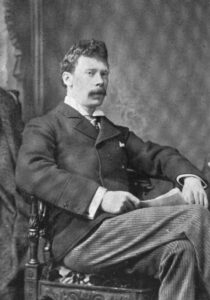
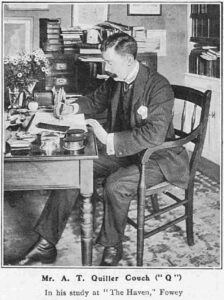
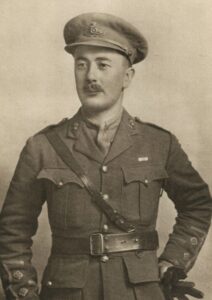
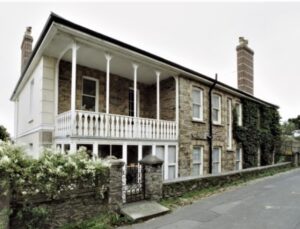
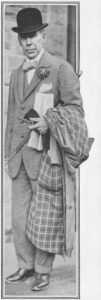
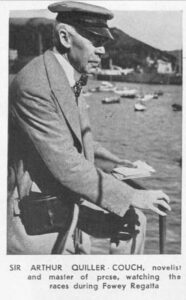
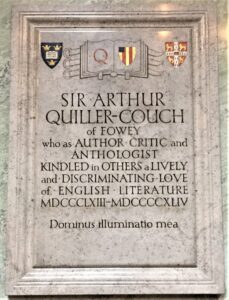
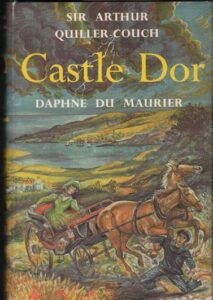
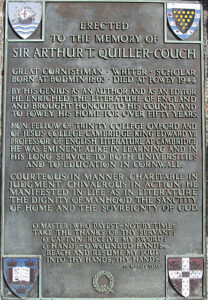
![[28] Voice - Ertach Kernow-060121A - Greatest Living Cornishman [S] Ertach Kernow- Greatest Living Cornishman - Sir Arthur Quiller-Couch 'Q'](https://www.cornwallheritage.com/wp-content/uploads/2021/01/28-Voice-Ertach-Kernow-060121A-Greatest-Living-Cornishman-S-232x300.jpg)
![[28] Voice - Ertach Kernow-060121B - Greatest Living Cornishman [S] Ertach Kernow- Greatest Living Cornishman - Sir Arthur Quiller-Couch 'Q'](https://www.cornwallheritage.com/wp-content/uploads/2021/01/28-Voice-Ertach-Kernow-060121B-Greatest-Living-Cornishman-S-230x300.jpg)